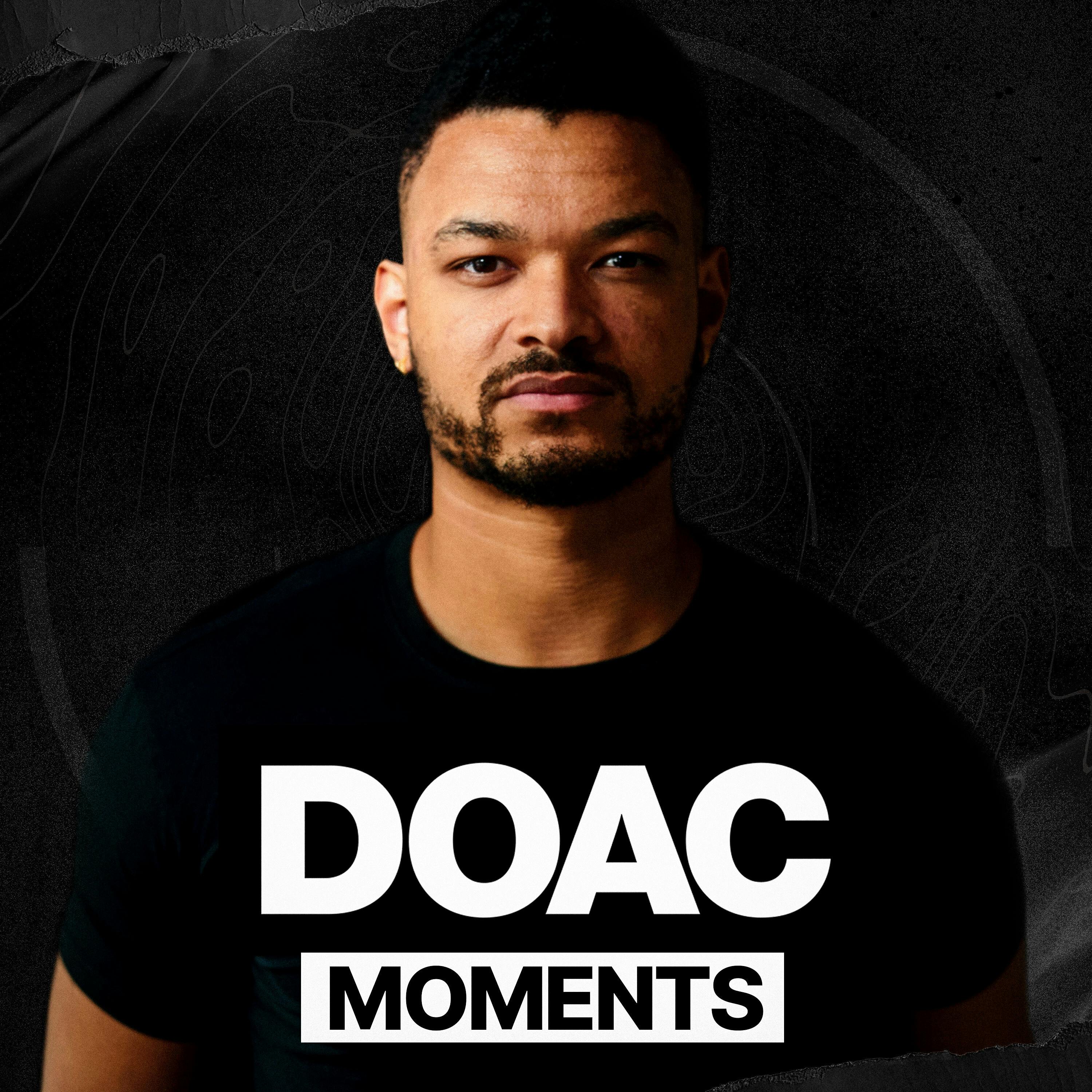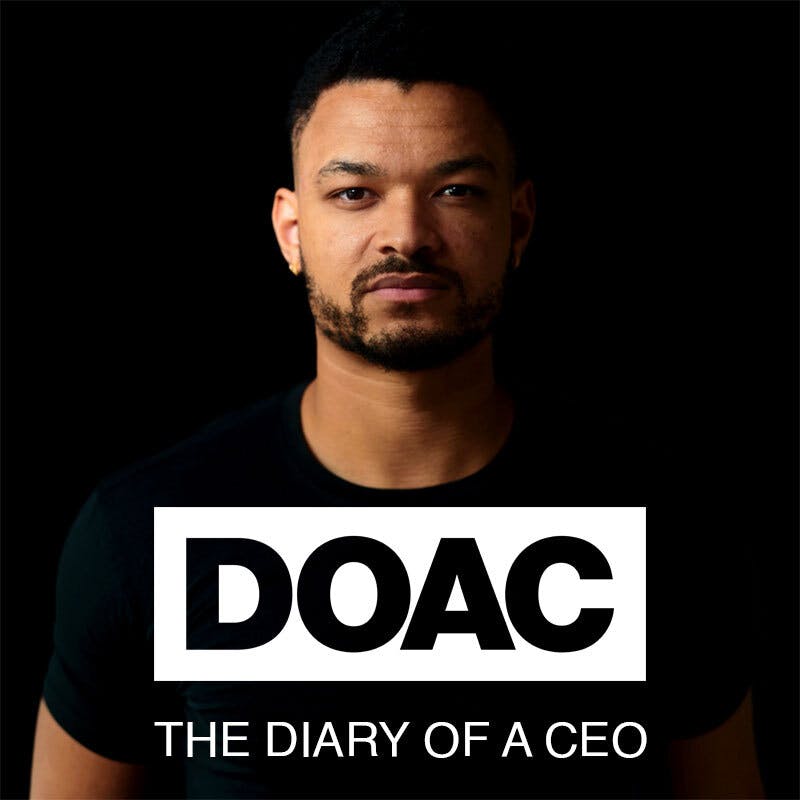
Moment 180: Neuroscientist's Top 5 WORST Habits That Are Destroying Your Brain: Wendy Suzuki

The Diary Of A CEO with Steven Bartlett
Deep Dive
- Lack of sleep, sedentary lifestyle, smoking, excessive alcohol, processed diet, and lack of learning harm the brain.
- Alcohol disrupts sleep, even in moderation.
- Mindfulness and meditation improve focus and prefrontal cortex function.
Shownotes Transcript
Quick one, I want to say a few words from our sponsor, NetSuite. One of the most overwhelming parts of running your own business, as many of you entrepreneurs will be able to attest to, is staying on top of your operations and finances. Whether you're just starting out or whether you're managing a fast-growing company, the complexities only increase. So having the right systems in place is crucial. One which has helped me is one called NetSuite. They're also a sponsor of this podcast, and NetSuite is the number one cloud financial system, bringing accounting, financial management, inventory, and HR into one fluid platform.
With this single source of truth, you'll have the visibility and control to make fast, informed decisions, which is crucial in business. I remember the chaos of scaling my first business and trying to keep everything in order. It was an absolute nightmare. And it's tools like NetSuite that make this easier. So if you're feeling the pressure, let NetSuite lighten the load. Head to netsuite.com slash Bartlett and you can get a free download of the CFO's Guide to AI and Machine Learning. That's netsuite.com slash Bartlett.
What would I have to do to destroy my brain? So no sleep. Yeah. I'm going to be sedentary. Yeah. I'm going to have no friends. Yeah. And smoking? Smoking is very bad for your health and your brain. Okay. Alcohol?
Alcohol, I mean, yes, long-term alcohol can cause significant and named brain diseases. Moderation, even moderation now, as studies have shown, is not very good. And the reason why it's not good is that alcohol disrupts your sleep. Even though people drink it to go to sleep faster, the sleep is much more superficial and is not deep and it's not the healthy sleep.
So that is not good overall for sleep, depth and health and therefore brain health. I'm going to eat a processed diet to hurt my brain. And I'm not going to have a lifestyle that is novel because we talked about learning. Right, yes. So I'm not going to learn anything new. All of these things should shrink that little betty. You're not going to be mindful also. No.
Is there evidence that being mindful, which is like meditation and being in the moment helps the brain? It does. There's beautiful studies showing brain plasticity in the areas that are important for focused attention. Meditation, the practice of meditation is basically a practice of enriching the function of your prefrontal cortex. So you can focus on that object, either the breath
or loving kindness is a form of meditation. So yes, there's been studies that brain changes occur in long-term meditators that are absolutely beneficial. What if I'm on social media all the time? Because isn't that good for me because I'm gonna be seeing lots of new things all the time and I'll be learning lots of new things. So isn't, if I sat on a screen for seven hours a day,
Is that good for my brain, social media? Does that take you away from real people and interacting with real people? Yes. Okay. Then it's modulated by that. Is it not the same thing? There's a difference, and I think your brain knows it. And look, there's enormous amounts of evidence showing that the increase in use of social media, especially in young kids, correlate with
in depression and anxiety levels, particularly in young girls. So when kids started getting the smartphones and started to spend more and more, seven hours a day on social media, that's when the anxiety and depression went up. That's for young kids.
I use social media as well as a tool for business. That is a little bit different. I'm not 13 years old and you're not 13 years old. So, you know, there's some warnings I think that need to go into that. But let me be clear. No, it's not the same. Social media is not the same as social interactions face-to-face, right?
Are you concerned about what social media is doing to our brains? Yes. Because we hear those stats around young girls are struggling most with social media and we think to ourselves, well, that's because there's a lot of comparison and all these kinds of things and there's a lot of toxic messaging and such. But
If we think about the physiological consequences of social media, what it's actually doing to our brains at a chemical level, what would you as a neuroscientist guess is the physiological harm to the brain? Not the sort of psychological, I'm thinking about like not the psychological, okay, oh my God, she's more this than me, but like the physiological harm.
But the psychological harm causes stress. Stress releases stress hormone that goes into the brain that at too high and too constant a level can start to first damage connections and then kill cells. So it's intertwined there and that is part of what is happening. You can't, you know, pull one away from the other.
There's our, you know, where social media is designed to kind of, it's like pulling the slot machine handle. I pull down on the feed and I get ping, oh look, there's a nice picture and ping, there's notifications and comments, et cetera. It's that, you know, I think about the constant, they say there's constant dopamine hit. Yeah. They refer to it. Is it a dopamine hit? Is that's what's happening when we're being stimulated by social media or a slot machine? Yes. And is there any harm in just a constant dopamine hit all day, every day?
Well, I would not. I'm going to answer that question by saying I would not want to be addicted to gambling. Gambling is addictive. It's hard to get away. You lose all these other things that we just decided were all good for you, including sleep, including social connections, including exercise. And I think that's part of what social media is doing for our young kids is not good, that they're not
joining teams outside to be social and interactive in that kind of, now it seems like an old-fashioned way, but it's a very, very powerful way for development and brain health. I think I'm addicted to my phone.
And I often ask myself, is that a problem? And from what you said, it sounds like the problem is what I sacrifice through that addiction to that device. Yes. Is that the issue? The issue is I sacrifice social connections, maybe movement. Yeah. You know, although I do work out every day. But the brain is smart enough to know that there's no substitute for real human connections. Absolutely. Absolutely. And that's going to make me what?
I'm trying to, I need you to help me, scare me out of this phone addiction that I think I have, but I know many other people have as well. So that is going to limit your potential for brain growth, for brain plasticity. It is going to limit your possibility for, you know,
not to be dramatic, but joy in your life. There's different kinds of joy that you have in real person-to-person social interactions that it feels pretty good on social media if you get lots of likes and, you know, but it's not the same. And I would say that to scare yourself out, you're going to have to bite the bullet and do a two-week exercise
phone detox. What would that do to you? How would you feel? I just could never imagine such a thing. Well. Which is a real shame, isn't it really? Because I just think about like my ancestors and my parents, they must think I'm so strange, but it's just the way that, like when my phone dies, I'm like, I'm like nervously waiting for it to come back on. I'm like staring at it like, oh my God, like what am I going to do with myself? Like,
And I remember those studies they did on people where they gave them the choice of either sitting alone with their own thoughts or giving themselves an electric shock. And a huge amount of people in that study actually would rather give themselves an electric shock than just sit alone with their thoughts because it's some kind of stimulation. That's kind of how I think I am now. Like, I don't know what I'd do without my phone. It's really sad. I know there's people listening to me now that think I'm an absolute, like, I'm really sad, but it's just the truth, you know? And...
I do wonder what it's doing to my brain, but I think you're right. I think it's actually what it's doing to my life. The joy, the connections, being there to experience things. I mean, that point that you made is a very profound one. The not wanting to be alone with your thoughts is the core of meditation. Can you be alone with your thoughts and focus on something?
something organic, usually the breath, but also a thought like loving kindness. That is a very powerful practice to do and it's hard. I find it hard too. And I actually noticed I find it harder when I'm using social media and when I'm using my phone more. But I feel most creative
and most imaginative when I do practice that. That is being alone with my thoughts. What comes into mind? How does my own imagination work? Which is very much dependent on the hippocampus as well. It's putting together all these things in your memory in new and interesting ways that are unique for you or unique for me. And it doesn't work the same if you are stimulating your brain with social media all the time.